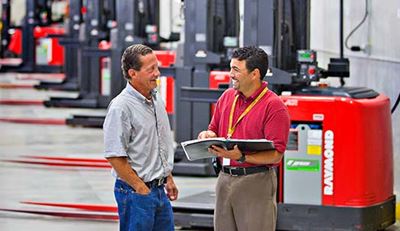Why are fleet replacement strategies so important? First, they help to minimize unexpected downtime while working to maximize productivity. For example, an older truck may need more frequent and costly repairs which can result in more downtime than you can afford to have. Secondly, not having an effective fleet replacement strategy can result in increased equipment, labor, maintenance, energy and insurance expenses. Further, industry surveys have found that many companies without documented replacement strategies for their lift truck fleet tend to have 10%-20% more lift trucks than needed. For most companies, reducing just one lift truck from their fleet would conservatively save over $30,000 a year in labor and other operational costs.
How do you properly determine when your lift truck has reached the end of its economic, not functional, life span, otherwise known as the economic point of replacement? Some companies use age and operating hours to determine when to replace lift trucks because this is the easiest information to collect. However, many times this does not give an accurate depiction of the fleet or corresponding costs.
Over the past few years, more robust methods have been developed to accurately understand your fleet costs and allow the creation of an effective fleet replacement strategy. Examples include:
- Ownership vs. Maintenance Costs Analysis
- Age / Technology Obsolescence
- Total Hours
- Costs (Lifetime or YTD)
- Utilization
- Weighted Factor Models
Many companies do not have an effective fleet replacement strategy simply because not everyone has the tools, time and/or expertise to collect and analyze this information. Luckily, there are fleet management programs and software in the market today specifically designed to help companies measure and analyze this information to save both time and money.



